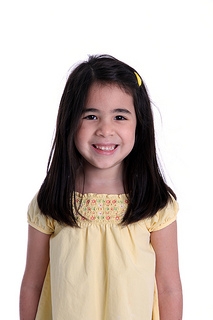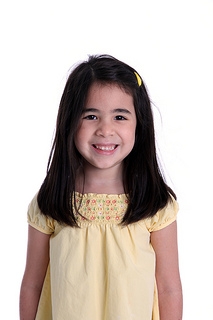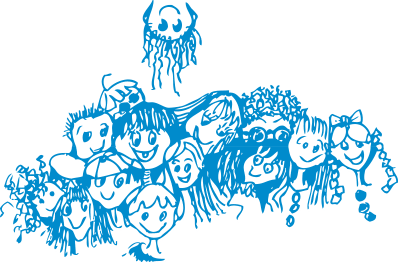October 7th, 2014

Dr. Stephen Korson, as well as our team at Summit Pediatric Dentistry, would like to give those patients with flex spend, health savings, or insurance benefits a friendly end of the year reminder that it’s high time to schedule your dental visits so you optimize your benefit.
Now is the time to reserve your appointment with us. Space is limited and we tend to get busy around the holidays, so don’t wait to give us a call at our convenient Summit, NJ office!
September 30th, 2014

Our team at Summit Pediatric Dentistry knows that every parent loves to hear his or her child say, "no cavities!" when leaving our office. Let's talk about why primary (baby) teeth get cavities, what you can do to help prevent them, and what Dr. Stephen Korson can do if your child gets a cavity. It's a team effort!
Prevention is Key
A well-balanced diet high in protein, vitamins, and minerals (especially calcium and phosphorous) is an important part of cavity prevention. The American Academy of Pediatric Dentistry (AAPD) states that children should eat healthy snacks like cheese, vegetables, and yogurt, and drink milk. Limit hard candy and carbonated beverages, which have acid and can cause tooth decay. Also, do not put children to bed with a bottle of milk, formula, or juice because sugary fluids pool around the teeth and gums, which promotes decay.
In addition to limiting sweets and scheduling regular visits at our Summit, NJ office, make sure your child flosses once a day and brushes his or her teeth twice a day with a pea-sized amount of fluoride toothpaste. A good rule of thumb is if children can tie their shoelace, then they should be able to brush their teeth without help. The American Dental Association (ADA) recommends the following basic brushing techniques:
- Place the toothbrush at a 45-degree angle to the gums.
- Move the brush back and forth gently in short strokes
- Brush the outer surfaces, inside surfaces and chewing surfaces of all teeth.
- To clean the inside surface of the front teeth, tilt the brush vertically and make several up-and-down strokes.
- Brush your tongue to remove bacteria and keep your breath fresh.
These tips will greatly increase cavity prevention; however, if your child gets a cavity, it will not heal on its own and must be fixed. Dr. Stephen Korson will remove the decayed part of the tooth and fill the hole where the decay was. You may wonder why it's important to fill baby teeth if they're going to fall out eventually. Baby teeth hold space for permanent teeth to grow in. If one is lost, teeth may shift and prevent a permanent tooth from growing in. In addition, a decayed tooth can become abscessed and cause pain. No fun!
Let’s work together to help your child develop good oral health habits that last a lifetime. Please contact our office if you have any questions about your child's diet or cavity prevention.
September 23rd, 2014

When a child is born, he or she will have 20 primary teeth and 32 permanent teeth. But sometimes kids are born with additional teeth, and our team at Summit Pediatric Dentistry calls this oral condition "hyperdontia." Primary teeth are the first set of teeth that erupt in your child's mouth, typically by the time they are 36 months old, and are shed by the time your child reaches the age of 12. Permanent teeth then take the place of the primary teeth and are usually fully-erupted by the time your son or daughter reaches 21 years of age. Anyone who develops more than 20 primary teeth or more than 32 permanent teeth has hyperdontia, and the additional teeth are referred to as supernumerary teeth.
While the cause of hyperdontia is not entirely clear, it is believed that there may be a genetic factor. Oral professionals have found that patients with extra teeth often have syndromes like cleidocranial dysplasia, Ehler-Danlos syndrome, Gardner syndrome, or cleft lip and palate. The prevalence of hyperdontia affects between one and four percent of the population in the United States, and the majority of cases are limited to a single tooth.
So, what is the best way to deal with hyperdontia? It really depends on the case. The treatment plan your doctor suggests varies according to the potential problem posed by the supernumerary teeth, as well as their type. Orthodontic treatment may certainly may help, but extraction can also be a good option. We recommend that children receive an oral evaluation or checkup no later than the age of seven. In addition to hygiene evaluation, this helps ensure your child does not experience hyperdontia problems.
If you suspect you or your child may be suffering from hyperdontia, please give us a call to schedule an appointment at our convenient Summit, NJ office to be evaluated.
September 16th, 2014

Many parents worry that their children’s teeth are not falling out on time. A lot of concerned parents want to know: When will my child lose his or her first baby tooth? At what age should the last tooth fall out? Is there a specific order in which the teeth are lost?
Dr. Stephen Korson and our team explain that a child's 20 baby teeth (primary teeth) typically come in by age three and begin to loosen and fall out on their own to make room for permanent teeth, which usually appear by the time your child is six. It is important to know that timing may vary, and girls typically lose their baby teeth earlier than boys. The last baby teeth will likely fall out by the time your child is 13.
So, which teeth do children lose first? Baby teeth tend to fall out in the order in which they came, which means the lower center incisors are usually the first to go when your child is between six and seven years old. The next teeth your child will lose are his or her top center pair, also called the upper central incisors.
It’s important to note that if a child loses a baby tooth early as a result of decay or an unforeseen accident, his or her permanent tooth may erupt early and potentially come in crooked due to limited space. If your child suffers an injury or has tooth decay, we encourage you to give us a call to set up an appointment with Dr. Stephen Korson.
While we know some children couldn’t be more excited to lose their baby teeth, we know others are anxious about this childhood milestone. When your child starts to lose teeth, our team at Summit Pediatric Dentistry encourages you to stress the importance of proper dental care on a daily basis.
Remember to:
- Remind your child to brush his or her teeth at least twice a day. Supervise and offer assistance as needed.
- Help your child floss his or her teeth at bedtime.
- Limit eating and drinking between meals and at bedtime, especially sugary treats and drinks, such as candy and soda.
- Schedule regular dental visits for your child every six months.
- Ask about the use of fluoride treatments and dental sealants to help prevent tooth decay.
To learn more about baby teeth, or to schedule your child's next visit with Dr. Stephen Korson at our Summit, NJ office, please give us a call today!







